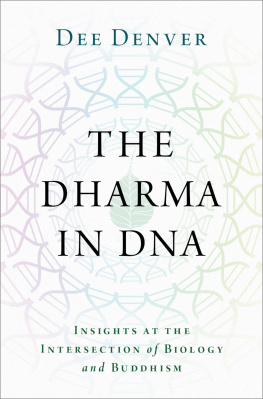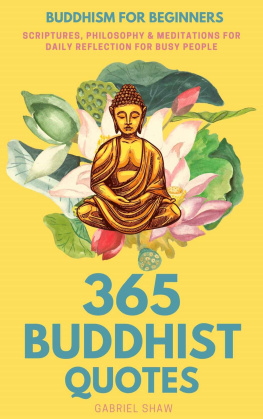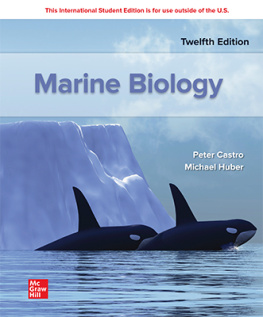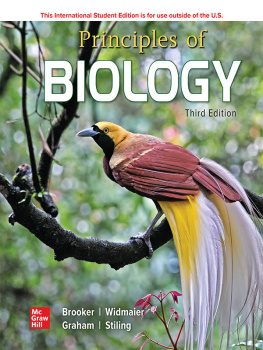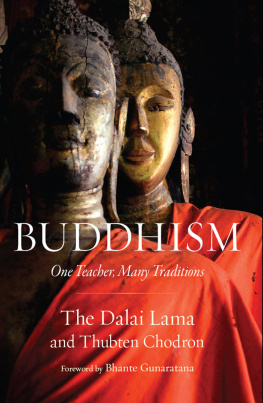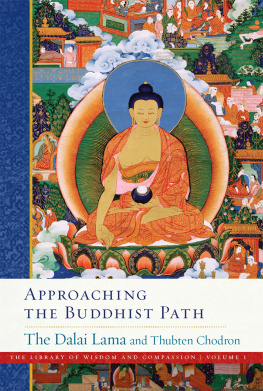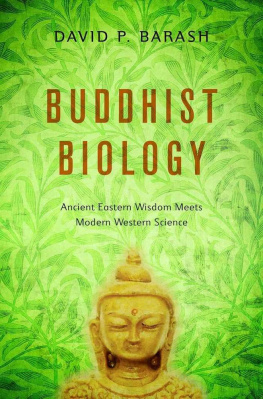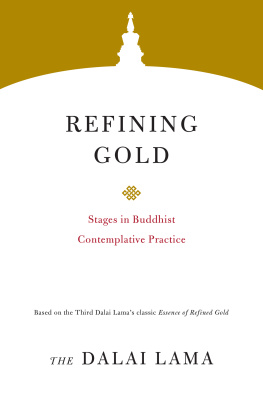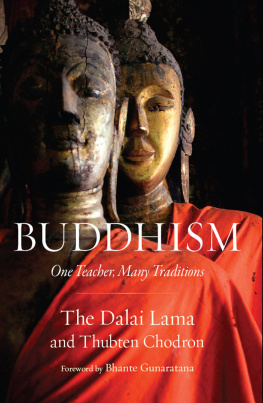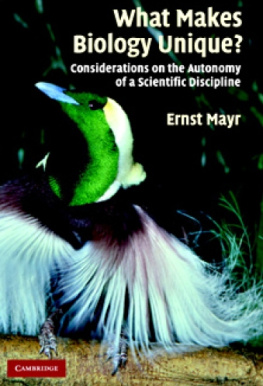The Dharma in DNA

Oxford University Press is a department of the University of Oxford. It furthers the Universitys objective of excellence in research, scholarship, and education by publishing worldwide. Oxford is a registered trade mark of Oxford University Press in the UK and certain other countries.
Published in the United States of America by Oxford University Press
198 Madison Avenue, New York, NY 10016, United States of America.
Oxford University Press 2022
All rights reserved. No part of this publication may be reproduced, stored in a retrieval system, or transmitted, in any form or by any means, without the prior permission in writing of Oxford University Press, or as expressly permitted by law, by license, or under terms agreed with the appropriate reproduction rights organization. Inquiries concerning reproduction outside the scope of the above should be sent to the Rights Department, Oxford University Press, at the address above.
You must not circulate this work in any other form and you must impose this same condition on any acquirer.
Library of Congress Cataloging-in-Publication Data
Names: Denver, Dee, 1973- author.
Title: The Dharma in DNA : insights at the intersection of biology and
Buddhism / Dee Denver.
Description: 1. | New York : Oxford University Press, 2022. | Includes
bibliographical references and index. | Contents: 1. Water2. Trees
3. Truths4. Intersections I5. Intersections II6. Sciences
7. Molecules8. Identities9. Bodhi10. IntimacyGlossary.
Identifiers: LCCN 2021050429 | ISBN 9780197604588 (hardback) |
ISBN 9780197604601 (epub) | ISBN 9780197604595 (pdf) | ISBN 9780197604618
Subjects: LCSH: Buddhism and science. | BiologyReligious
aspectsBuddhism. | Buddhism.
Classification: LCC BQ4570. S3 D38 2022 | DDC 294 .3/3657dc23/eng/20211202
LC record available at https://lccn.loc.gov/2021050429
DOI: 10.1093/oso/9780197604588.001.0001
To Olivia Belle Hoover
Ko au te awa, ko te awa ko au.
I am the river, the river is me.
traditional saying of the Whanganui iwi
Contents
This book resulted from the love, support, wisdom, and kindness offered to me by countless family members, colleagues and coworkers, teachers, students, and friends over the last decade.
Gratitude goes to Stephanie Swenson, Amani Swenson Denver, and Hirut Swenson Denver for supporting me, putting up with my ever-distracted mind, and keeping the family functioning during my writing retreats. More appreciation goes out to my nuclear family for the many conversations we have had about this book, and for their willingness to allow me to share our familys experiences in it. Thank you. I love you.
More gratitude extends to other corners of my family that include my mother, Kay Denver, and my recently passed father, Phil Denver, Sr., who provided me with the kindness, support, encouragement, and confidence needed to pursue an effort such as this. More thanks go to my brother and sister, Phil Denver, Jr. and Tammy Horn, and to my Aunt Jan Kauffman for their ever-present support and love. Appreciation goes out to my father-in-law, Mike Swenson, for reading and providing feedback on an early draft of the book and for teaching me about aspens. More thanks go to Jan Swenson, Kristen Swenson, and Matthew Mills for their love and support over the years.
Appreciation goes out to my St. Joseph, Missouri high school friends who have shown me companionship, adventure, laughter, and joy throughout my life. Special thanks go out to Colin Mullins, Sona Pai, and Mike Schurke for reading and commenting on an early draft of the book. More gratitude extends to our family friends here in Oregon, and especially the Bland family and the McQuillan family; thanks to Lon and Lex McQuillan for letting me stay in their Waldport beach house for two writing retreats.
This book would not have been possible without two sabbatical leaves granted by Oregon State University. The first sabbatical, during 20122013, allowed me to learn about Tibetan Buddhist philosophy and epistemology at Maitripa College in Portland. The second, during 20192020, allowed me to travel to Bodhgaya, India, to perform research and compose the final two chapters of the book. Gratitude goes to the OSU Spring Creek Project, which granted me a 2016 writing retreat in the Shoutpouch Creek cabin, hidden away in the Oregon coastal range mountains. Special thanks go out to Brian Atkinson, now at the University of Kansas, for co-instructing an experimental Buddhism and science course with me at OSU in 2016. Gratitude goes to Nana Osei-Kofi, Bradley Boovey, and my fellow 2017 Difference, Power, and Discrimination Academy cohort members for helping me better understand and teach about the nature of power and oppression. I thank my many colleagues and friends in the OSU Department of Integrative Biology, College of Science, and those with the Contemplative Studies Initiative for their engagement and support.
Big thanks go out to the members of my evolutionary genetics research team as it has evolved over the years. Dana Howe, the most skilled scientist I have ever encountered, has been a central and essential source of friendship, support, and wisdom as I have navigated this effort. Eight graduate traineesMichael Raboin, Emily Bellis, Riana Wernick, Danielle Tom, Ian Morelan, Anh Ha, Sushovita Pal, and Lex Andersonprovided important honest feedback on various versions of this book and its ideas over the last decade. More gratitude goes out to a ninth graduate trainee, Sulochana Wasala, and her wonderful family for hosting me during a 2017 trip to Sri Lanka, where I learned about Theravada Buddhism. Thanks extend to Amila Liyanage for insightful conversations and his willingness to share remarkable photos of Bodhi trees. Two postdoctoral scholars, Amanda Brown and Katie Clark, along with many dozens of undergraduate trainees over the years, provided important insights that helped make this book what it is.
Gratitude goes out to the many teachers and mentors I have encountered and learned from in the world of Buddhism. These include Yangsi Rinpoche, Jim Blumenthal, Bhikkuni Kusuma, Venerable Sarana, Venerable Yifa, Abby Mushin Terris, and the Dalai Lama. Gratitude also goes out to the many teachers and mentors I have encountered and learned from in the world of science. These include Kelley Thomas, Michael Lynch, David Lambert, Lindsey Hutt-Fletcher, and Barbara Taylor. Appreciation extends to my past and present collaborators in biological research that include Charles Baer, Suzanne Estes, Rory Mc Donnell, and Inga Zasada.
This book would not have been possible without wise advice coming from David Barash at the University of Washington and Scott Gilbert, Swarthmore College and University of Helsinki Professor Emeritus. Professor Barash reviewed an early version of the manuscript and has been an important source of advice for academic book writing; Professor Gilbert self-identified to me as a reviewer with Oxford University Press and offered many important suggestions and insights in his review and further along the way. Thanks go out to a second OUP reviewer who chose to remain anonymous.
Gratitude goes out to Jeremy Lewis, senior editor for Oxford University Press, for supporting me and this book effort during the COVID-19 pandemic. Thanks to the Oxford University Press and Newgen Knowledge Works copyediting team for sharing their superb skills with this book.

